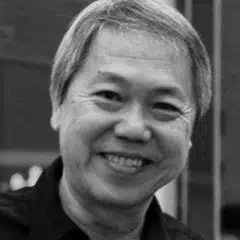Chinese bookshops in Singapore: Art salons of the 1970s and 1980s
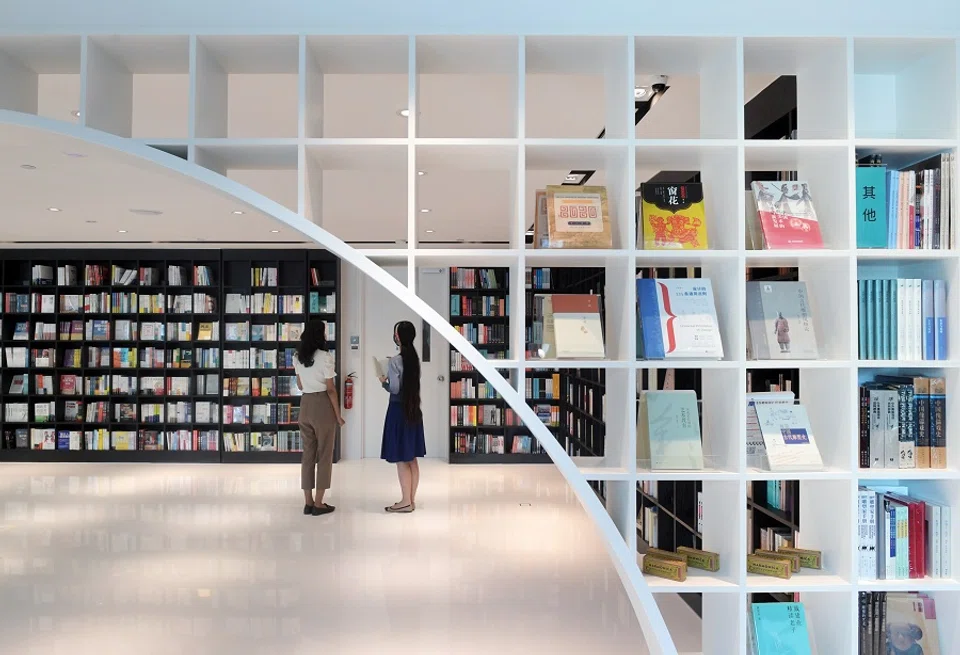
(Photos provided by Teo Han Wue unless otherwise stated)
News of a new physical bookshop opening in Singapore's busy Orchard Road early last month was widely reported, causing quite a stir.
Chinese bookshop Zall, which was officially opened with a grand ceremony and an art exhibition at Wheelock Place on 8 February, is the first overseas branch of its principal in China's Wuhan.
Many were surprised at how it braved the trend of bookshops closing down over the years, even setting up shop at the very location where US-based bookseller Borders had been for 13 years before it ceased operation in 2011.
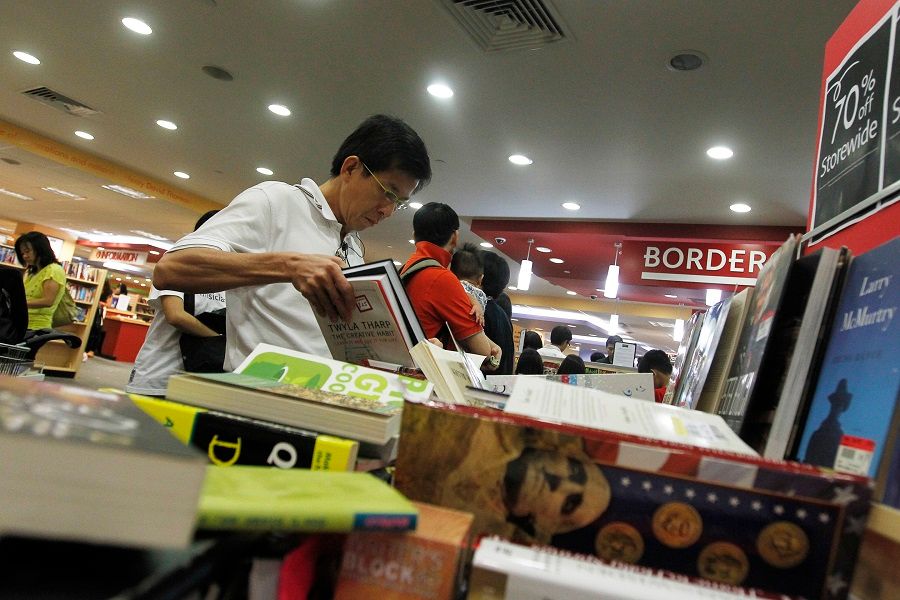
I was particularly struck by some intriguing comments on social media about the concept of a bookshop which includes an art gallery and a cafe, especially in terms of where it came from.
An artist commented on Facebook that because Zall was started in 2013, it had therefore "copied" Eslite, a giant bookstore chain in Taiwan operating since 1989. Another artist added that it was Taiwan that did it before China. An art historian joined in saying that was why Zall also wanted to set up an art gallery in the bookshop as Eslite did. Both Zall and Eslite have an art gallery and a cafe integrated with the bookshop and stay open for 24 hours daily.
It was left to artist/researcher Koh Nguang How to remind them that Chinese-language bookstores in Singapore have a history of having an art gallery incorporated.
He was then challenged to name them to which he replied by posting old newspaper reports on some Chinese bookshops of the past.
Besides, many narratives about Chinese bookshops somehow seldom refer to their visual arts activities. That is probably why their art spaces are not considered to be part of the art ecosystem as they should be.
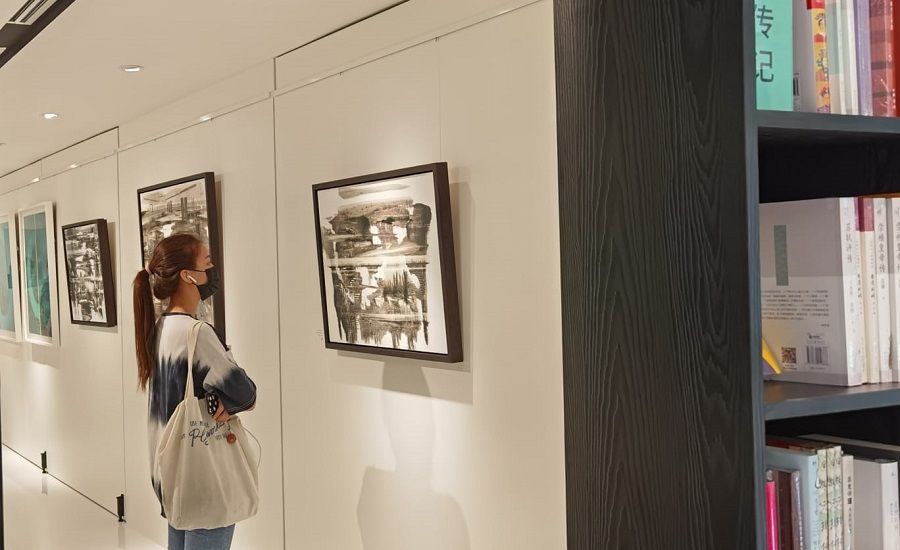
It may not be a big deal whether Zall or other bookshops in major cities in China actually copied Eslite's idea of running a bookshop with an art gallery. After all, bookstores that display art pieces in a dedicated space are hardly a new thing. More seriously, I think, the online exchange reveals a general lack of awareness among many in the art community of the significant role that Chinese bookshops had played in Singapore's art development during the 1970s and 1980s.
Most Singaporeans, especially among those who are English-speaking, are unlikely to have any recollection of visiting art exhibitions at a bookstore gallery as compared to the Chinese-educated due to their reading habits. Besides, many narratives about Chinese bookshops somehow seldom refer to their visual arts activities. That is probably why their art spaces are not considered to be part of the art ecosystem as they should be.
Shih Yin Chu noticed and admired the passion of the then-teenager and let him have it at half the price without hesitation saying, "This is the best way because you truly love it."
The art salon: Chung Hwa Book Co.
Founded in 1923 in South Bridge Road, Chung Hwa Book Co. set up a spacious art gallery on its second and third floors in 1971 and began bringing in Chinese paintings from Hong Kong. It was a most wonderful place to visit on Saturdays because one could view many paintings by renowned masters such as Chang Dai-chien, Qi Baishi, Wu Changshuo and Ren Bonian. That was certainly one of my favourite weekend haunts during my younger days.
The gallery attracted a great number of visitors including prominent artists such as Liu Kang, Pan Shou, Huang Pao Fang, Chen Chong Swee and Fan Chang Tien, who often gathered there much in the way of a salon. Apart from the exhibitions, the popularity of the gallery was largely due to the charisma of its manager Shih Yin Chu whose extensive connections with the literary and art circles here and abroad had few rivals. I was deeply impressed by his erudition when I talked with him as a Straits Times journalist writing about art exhibitions during the 1980s.
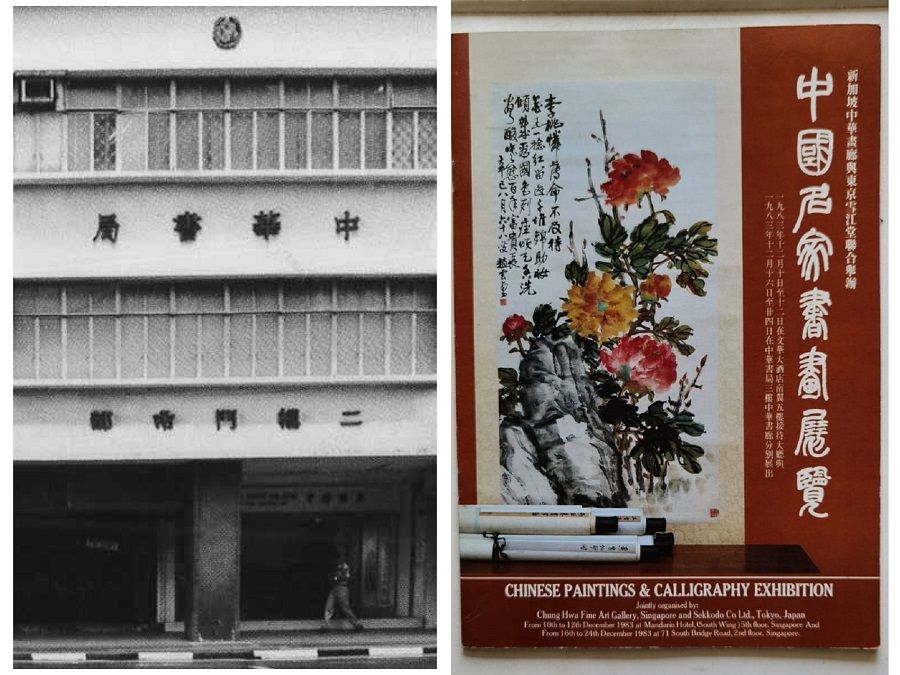
Artist-collector Henri Chen Kezhan, 62, recalls the time when he wanted very badly a Yu Youren calligraphic scroll but didn't have enough money to buy it. Shih noticed and admired the passion of the then-teenager and let him have it at half the price without hesitation saying, "This is the best way because you truly love it." Chen remains grateful to Shih for such a timely lift to his artistic pursuits.
Chung Hwa Fine Art Gallery is most fondly remembered for those legendary Saturday sessions where poet-calligrapher Pan Shou regularly wrote with a brush beautiful pieces of calligraphy that were instantly "collected" by observers even before the ink was dry.
Exhibiting art from the region: Shanghai Book Company
Despite running a little behind, Shanghai Book Company also ventured into starting an art gallery with a difference in 1978. One of the owners Cheng Mong Sing and her husband Tommy Cheng Chi Chong set up Gallery Asia on the second floor of the bookshop in Victoria Street and set out to distinguish itself from Chung Hwa by exhibiting art from Singapore and the region in addition to China.
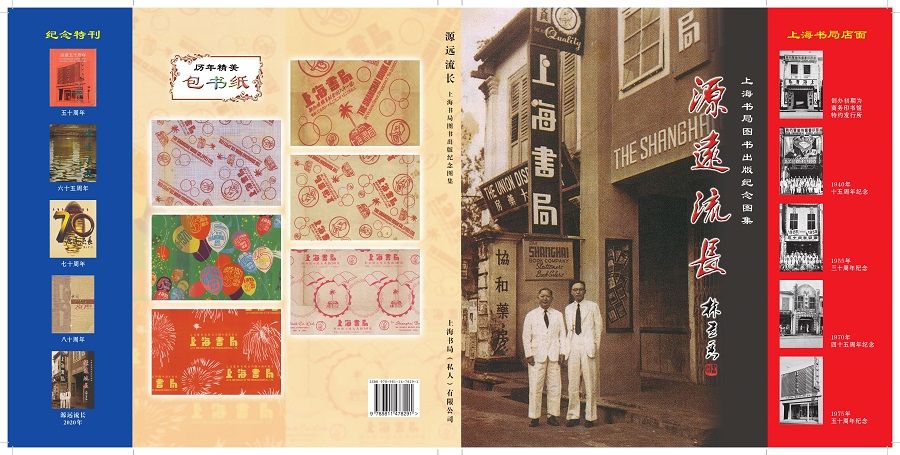
"We started Gallery Asia because my husband was keen on art and personally knew many Singapore artists," says Chen Mong Sing, 89. In its first year, it mounted a show featuring 12 local artists such as Cheong Soo Pieng, Chua Mia Tee, Lee Man Fong, Lim Tze Peng and Wan Soon Kam. In the following year, it presented an exhibition of Thai ceramics.
One day in 2011, a Frenchman based in Singapore came to Art Retreat, a private museum with a special Wu Guanzhong Gallery I was running. He showed me a picture of a Wu Guanzhong ink painting which he bought from a big exhibition by Gallery Asia and a review I wrote for The Straits Times in 1980. It immediately took me back to the time when art exhibitions were organised mainly by the major Chinese bookstores.
From calendars to art exhibitions: Maha Yuyi
Mr Sung Teo Chu, 84, founded Maha Yuyi in 1969, a business selling mainly stationery, stamps, diary books and calendars which proved profitable. He also started to bring in books after having established a good network with the schools later. The calendars of Chinese paintings that he brought in from China were becoming so popular that he almost monopolised the market. As growing demand for such artistically designed calendars led to customers wanting to own original paintings, Mr Sung who confesses to knowing little about art, began to do exhibitions ranging from affordable art costing no more than S$100 each to works by renowned artists from Shanghai. To cater for more expensive tastes, he also brought in works like Wu Guanzhong paintings for his more discerning clients.
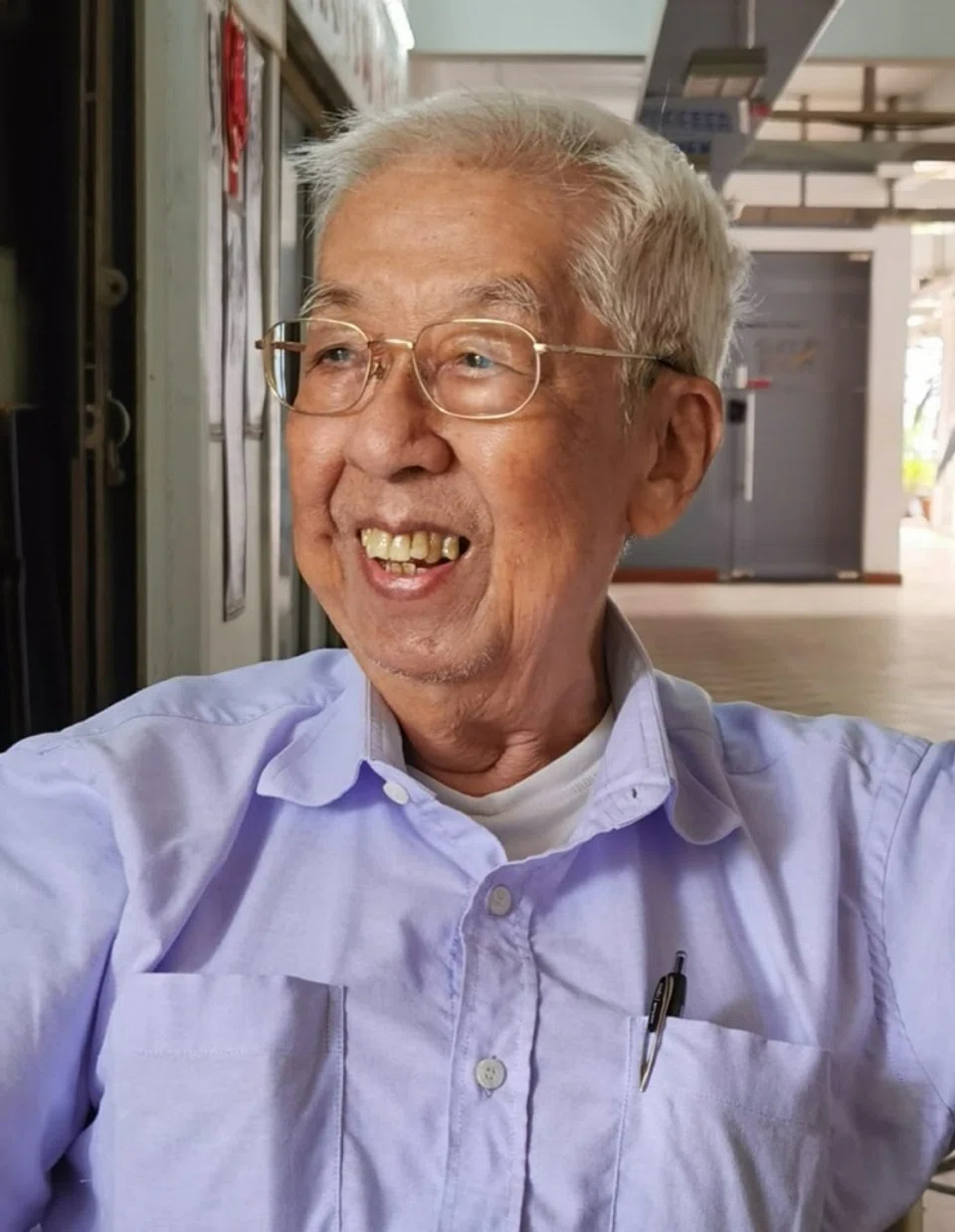
Maha Yuyi bookshop, which has been operating at Bras Basah Complex since the 1980s, added a dedicated space called Maha Yuyi Exhibition Centre, where exhibitions featuring artists such as Tang Yun and Cheng Shifa were held. Singapore artist Thang Kiang How also held a two-week one-man show in the venue in 1988.
A cuppa with art: International Books Pte Ltd
When the 1980s saw Bras Basah Complex, better known as Shucheng (书城, Book City), developing into a centre for bookshops, one of them, International Books Pte Ltd, expanded and started Mid-Point Gallery with a teahouse attached on the fourth floor in 1988. "With the art space and teahouse, I had developed an integrated concept of a contemporary bookstore," says Mr K R Chong, who now lives in retirement in Dongguan, China.
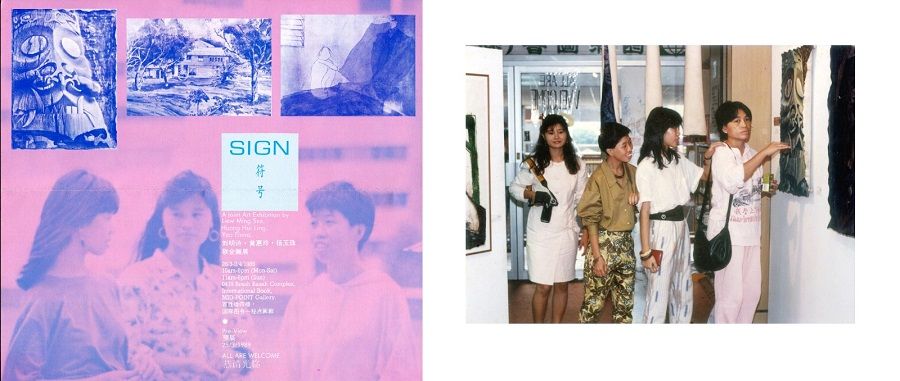
Thanks to its curator Lim Kok Wee, a graduate from Lasalle College of the Arts, Mid-Point Gallery became a much welcome venue for emerging artists such as Lim Poh Teck, Koh Nguang How, Oh Chai Hoo and Amanda Heng, many of whom have since become established artists.
Artists, writers and scholars would come and meet on weekends in this modest but rich space, which I would describe as the most integrated bookshop I have known. - Teo referring to Books and Art of All Ages at Bras Basah Complex
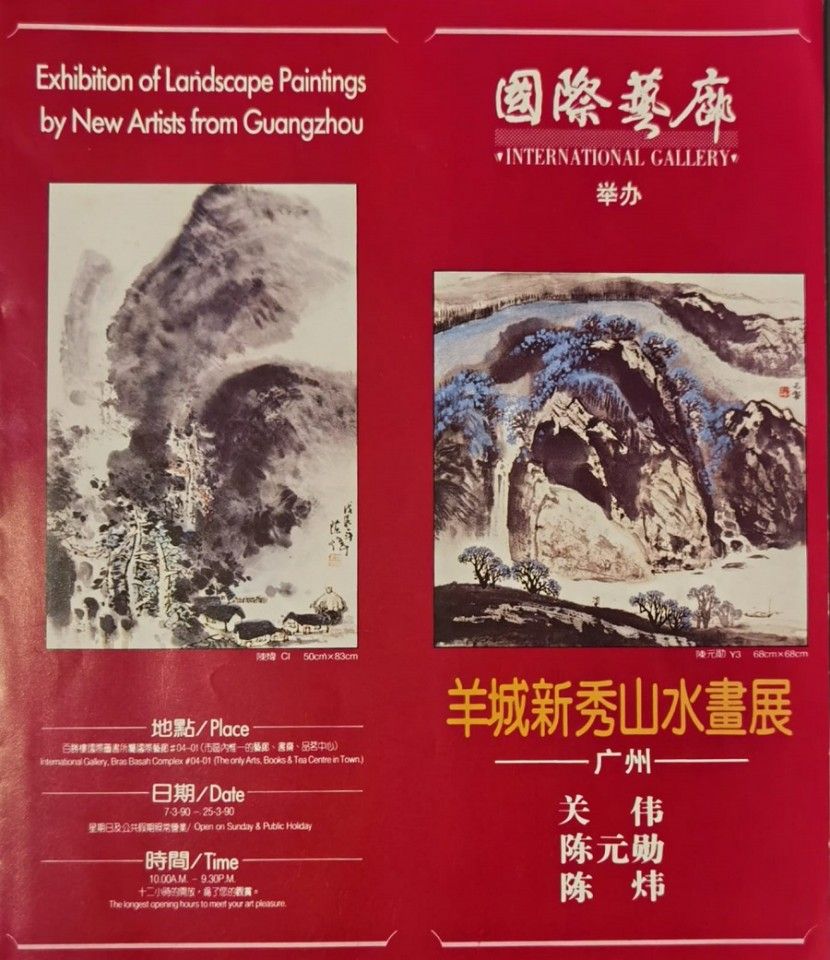
International Books, which closed in 2000, may well have been reincarnated as the new Grassroots Book Room in Bukit Pasoh Road. Run by Lim Jen Erh, Lim Yeong Shin and Lim Wooi Tee, who took over from its previous owner award-winning writer Yeng Pway Ngon since 2015, Grassroots has a cosy cafe and frequently holds exhibitions and talks which are always well-attended.
As integrated as can be: Books and Art of All Ages
True to its name Books and Art of All Ages, a bookshop tucked in a second floor corner of the complex was unique. As aptly headlined in a Straits Times interview I wrote in 1982, "Drop in for Tea and a Chat About Books and Art", one could do just that with Yeow Li Chi who ran the shop all by himself. Any visitor would immediately be offered a chair and a cup of hot tea before he would start telling endless tales behind his own vintage collections of books and paintings that turned his shop into a treasure trove. Old man Yeow's knowledge about books and art was simply encyclopaedic. Artists, writers and scholars would come and meet on weekends in this modest but rich space, which I would describe as the most integrated bookshop I have known.
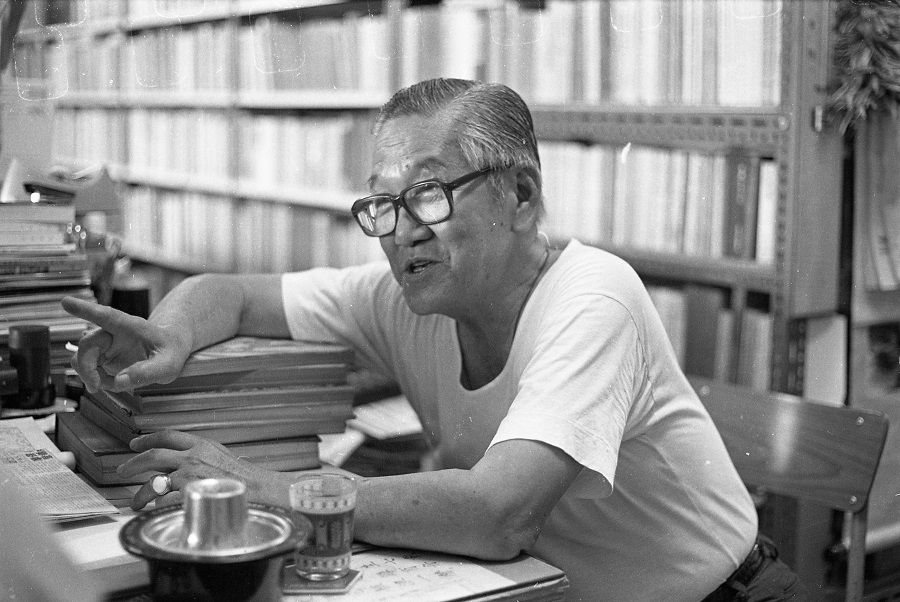
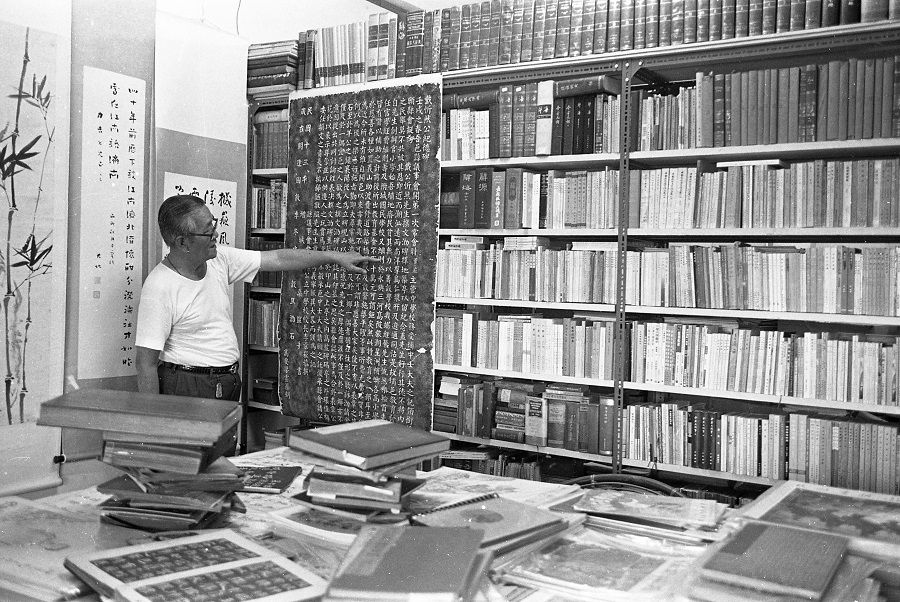
Today Bras Basah Complex has far fewer bookstores than before and increasingly more art galleries, stationeries and art material shops. Book City might as well be called Art City.
Perhaps it was the memories of the warm smiling faces of Shih Yin Chu and Yeow Li Chi I was struggling to recall in this swanky and tastefully designed boutique-like ambience.
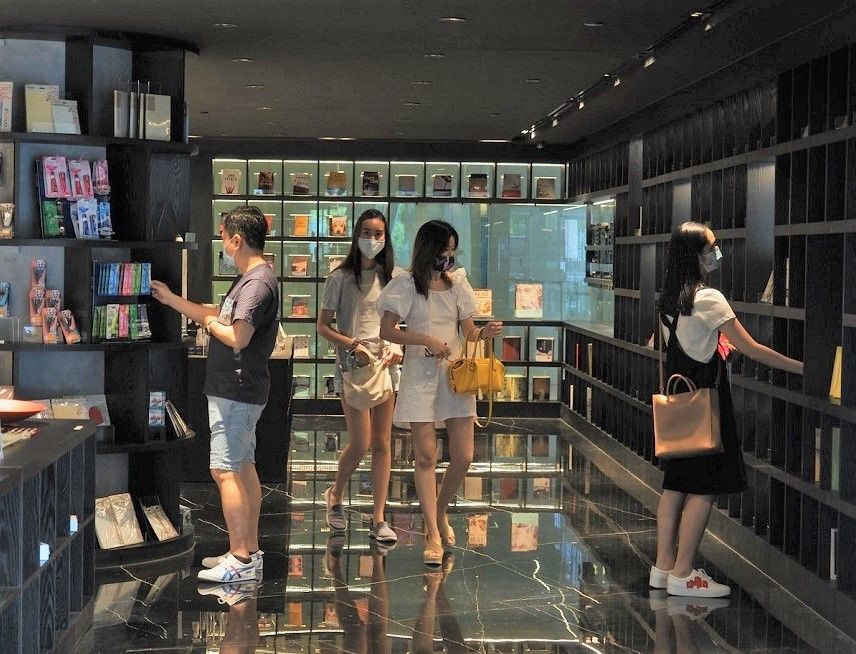
Last weekend I took a trip to Zall Bookshop half wondering if it would trigger nostalgic feelings of old integrated bookstores I used to know. While browsing, I suddenly realised that I was the only elderly man among the many fashionably dressed young people in this Orchard Road bookshop.
For a moment it felt as though it wasn't books that I was looking for. Perhaps it was the memories of the warm smiling faces of Shih Yin Chu and Yeow Li Chi I was struggling to recall in this swanky and tastefully designed boutique-like ambience.
